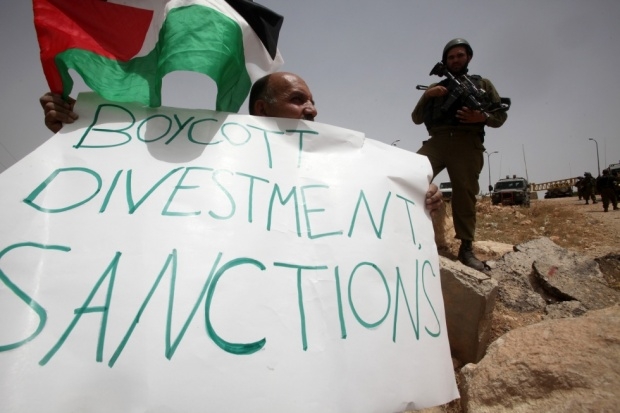Local UK councils to lose 'boycott and sanctions' powers

A new set of guidelines scheduled to be issued early next year would restrict the ability of local councils in the UK to divest from organisations and countries they decide are unethical, a government department has confirmed.
The Department for Communities and Local Government (DCLG) told the Press Association on Sunday that it is drafting rules that will prevent local governments from starting their own "boycott and sanction" campaigns.
“Councils should not be using pensions and procurement policies to pursue their own boycotts and sanctions against foreign nations,” a DCLG spokesman told the Press Association.
“We are tightening up the rules to ensure taxpayers’ and the UK’s interests are protected.”
The change in the guidelines, the Independent reported, will also make it clear to local authorities that “their predominant concern should be the pursuit of a financial return on their investments”.
The guidelines could have wide-ranging implications for local authorities which have refused to trade with companies involved in the arms trade, fossil fuels, or Israeli settlements in the occupied West Bank.
Richard Burden, a Labour MP, shadow transport minister and chair of the All Party Palestine Parliamentary Group, called the new guidelines “bluntly crass” and “potentially anti-democratic” and said he planned to challenge them when Parliament reconvenes in January, the Independent reported.
It could “prevent councils pursuing goals like community cohesion, environmental sustainability and human rights in line with the best practice of the progressive private sector. It’s called corporate social responsibility. The right ethical investment decisions in the long term are often also the right business decisions,” he was quoted as saying.
New MEE newsletter: Jerusalem Dispatch
Sign up to get the latest insights and analysis on Israel-Palestine, alongside Turkey Unpacked and other MEE newsletters
Middle East Eye delivers independent and unrivalled coverage and analysis of the Middle East, North Africa and beyond. To learn more about republishing this content and the associated fees, please fill out this form. More about MEE can be found here.




